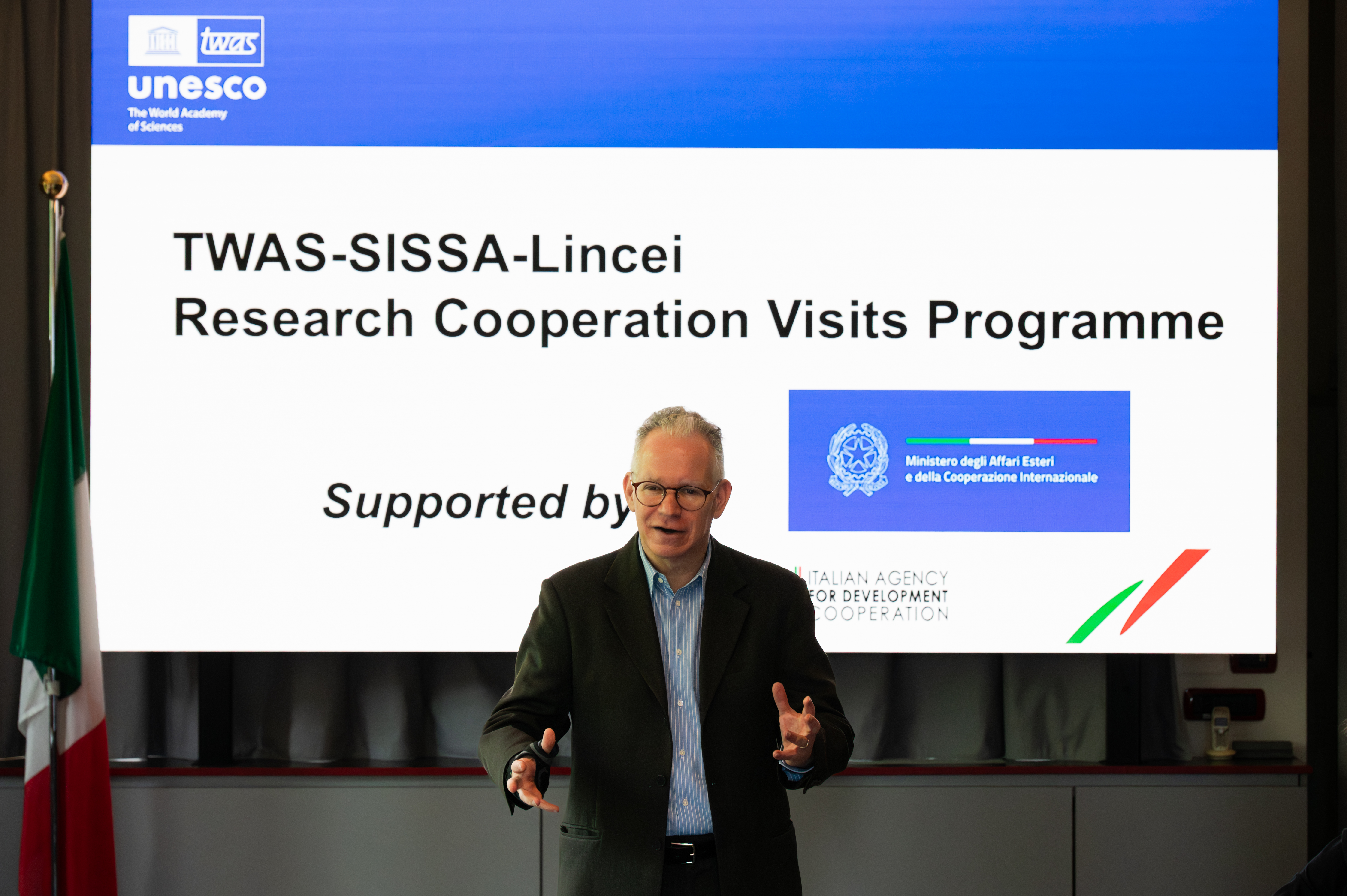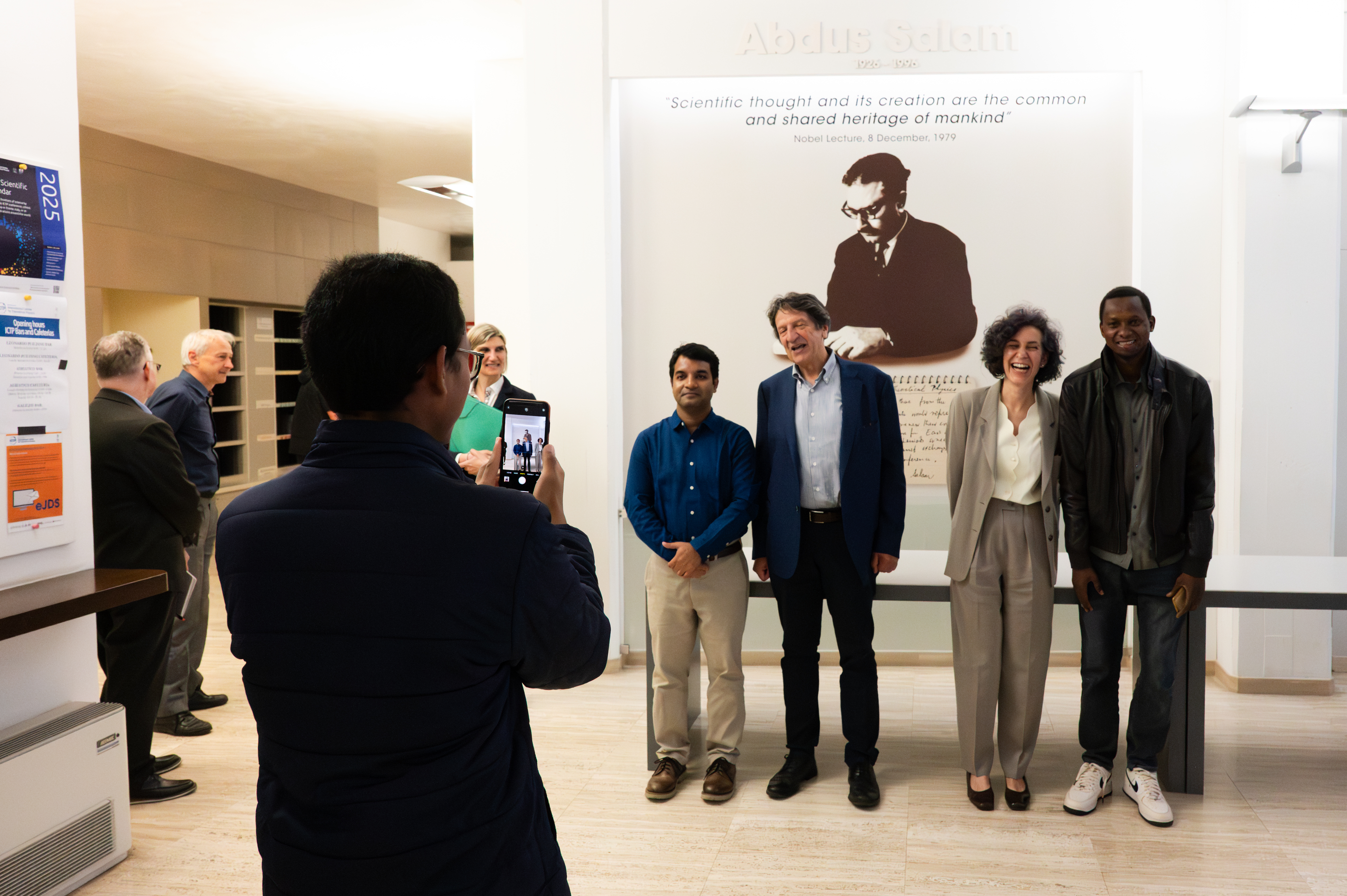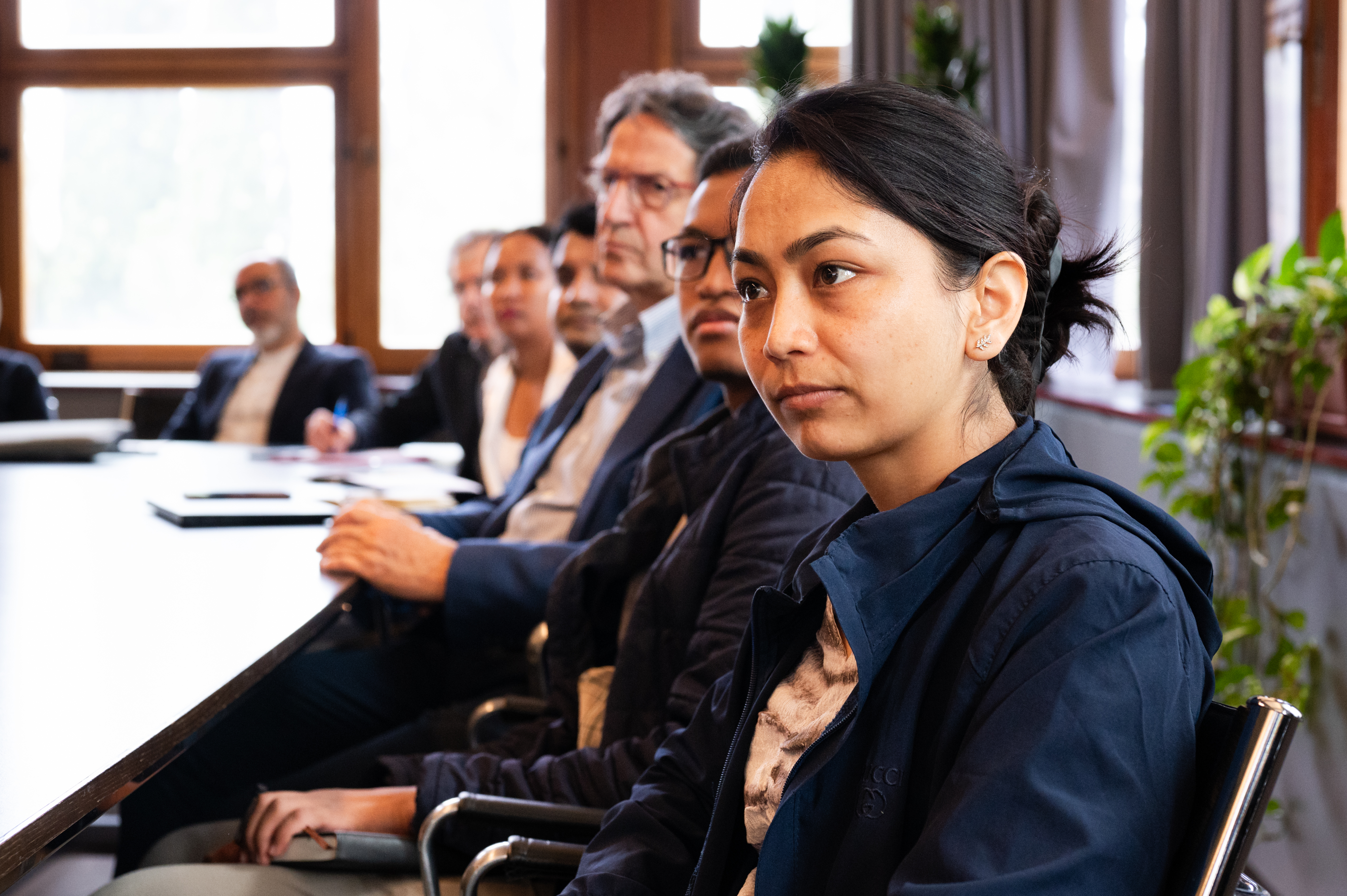
Opportunities for developing world scientists to conduct research in laboratories across Italy’s Friuli Venezia Giulia region play a vital role in advancing science in the global South and building North-South collaborations. This was the key takeaway from an event held on 21 May 2025 at TWAS, when six early-career scientists from Least Developed Countries (LDCs) visited the Academy to present the outcomes of their research stays.
These visits were carried out under the TWAS-SISSA-Lincei Research Cooperation Visits Programme. Their local supervisors also joined the event to discuss the value of scientific collaboration in their respective fields.
Launched in 2020 and dedicated to scientists from LDCs, the programme selected 15 scientists in 2024, representing Bangladesh, Benin, Burkina Faso, Ethiopia, Madagascar, Malawi, Nepal, Niger, Rwanda, Senegal, Somalia, Tanzania, and Uganda. Of these, four are women.
This programme offers a three-month visit to carry out research, receive training, and establish collaborations at scientific institutions within the Friuli-Venezia Giulia Scientific Innovation System (SIS FVG) in Italy. It is supported by the Italian Ministry of Foreign Affairs and International Cooperation (MAECI) and the Italian Agency for Development Cooperation (AICS).
"By fostering scientific excellence, facilitating knowledge transfer, and building long-lasting collaborations, the TWAS-SISSA-Lincei initiative makes a vital impact on science and sustainability in the global South," said TWAS Executive Director Marcelo Knobel in his welcome address.
The visitors included Ravaka Andriatsitohaina and Rivoharifara Randrianarimanana of Madagascar, Theophile Bimenyimana of Rwanda, Aminou Issoufou of Niger, Sarita Lawaju of Nepal, and Kawchar Patwary of Bangladesh. They were supervised, respectively, by Marco Contin (University of Udine), Alessio Ansuini (Area Science Park), Claudia Cherubini (University of Trieste), Umberta Tinivella (The National Institute of Oceanography and Applied Geophysics), Emanuele Coccia (University of Trieste), and Andrea Vacchi (National Institute for Nuclear Physics). Their research covered a broad spectrum of scientific disciplines, including organic waste recycling and soil fertility, applied geology, seismology, physics, laser spectroscopy, and forest ecology.

"Using modern equipment, I learned new methods and analysis techniques that I can apply in soil chemistry and microbiology once such equipment becomes available in my country," said Ravaka Andriatsitohaina, a soil scientist at University of Toamasina in Madagascar. "My deep gratitude goes to the Italian Government for making such a training possible."
All scientists described the programme as an enriching experience, with a positive impact on both their careers and personal growth. Hosting scientists reported similar positive impacts.
“The arrival of Ravaka, the first scientist we had from Madagascar, sparked curiosity and excitement in my group. She has been quick to build friendships and collaborations with many of our young staff,” said pollution expert Marco Contin, an associate professor at the University of Udine.
“My group, called Environmental Soil Functionality, values biodiversity at all levels, and scientists coming from abroad stimulate an exchange of views, scientific discussions and resourcefulness.”

The early-career researchers reported that the TWAS programme enabled them to participate in high-level research projects, establish international collaborations, and access advanced technologies to share with colleagues in their home countries. It also helped them to gain clarity regarding the direction of their scientific careers. Notably, Randrianarimanana and his supervisor, Ansuini, announced that, following their collaborative work at Area Science Park, they are preparing a manuscript for submission to an international journal.
For some visitors, living in a seaside city like Trieste—where TWAS is headquartered—offered a unique experience.
One of them is Kawchar Patwary, a medical radiation physics and engineering experimentalist at Comilla University in Bangladesh, who carried out research at the National Institute for Nuclear Physics (INFN).
"Visiting the INFN laboratory in Trieste has enriched my teaching and my ability to supervise students," he said.
He emphasized that the experience taught him how to design training programmes that support career growth by allowing researchers to work in different countries. His plans include proposing a memorandum of understanding between Comilla University and INFN in Trieste, as well as establishing exchange programmes for faculty and researchers.
Since its launch, the programme has selected 57 researchers from 19 LDCs, with women accounting for 40% of the recipients. This year marks the first-ever selection of scientists from Somalia and Uganda.
Cristina Serra
More photos are available on the TWAS Flickr page.

